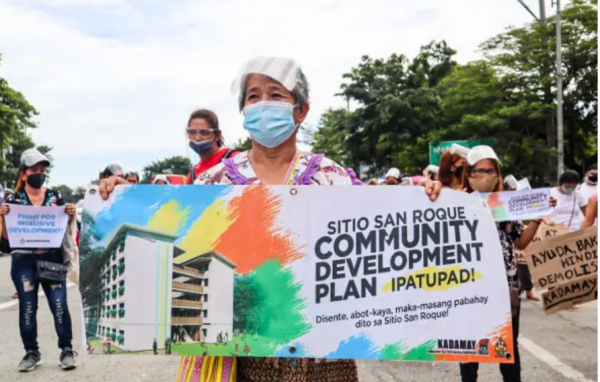Researchers and grassroots networks in Manila worked to support the health and livelihood of the ‘urban poor’ during the pandemic and now during state-led recovery.

Residents of Sitio San Roque holding a protest action to push for affordable housing for the poor. Picture: Supplied
The COVID-19 pandemic has disrupted the livelihoods of many informal workers in Manila, exacerbating pre-existing inequalities and exposing inadequacies in welfare and health services. The Philippine government's approach, framing the pandemic as a security issue and resorting to violent policing, has led to human rights abuses. In response, the University of Melbourne's Informal Urbanism Research Hub (InfUr) collaborated with grassroots organizations to implement an advocacy and research project called “Civic Space, Livelihoods and Post-pandemic Recovery in Manila."
The project's Quick Response Team (QRT) documented and addressed political harassment, clearing operations against street vendors and informal transport drivers, and demolition of informal housing units. The project had several successes, including inoculating about 2,000 street vendors and urban poor residents and negotiating the Hawkers' Holiday Moratorium to suspend clearing operations against street vendors. Additionally, the QRT conducted a human rights education workshop and supported community groups in dialogues with the government about their housing problem. InfUr is now implementing an expanded multi-stakeholder project called "Tindig Maralita: Consolidating gains, pursuing just recovery with the poor." InfUr aims to ensure recovery strategies address the livelihood needs of the urban poor, involve informal worker associations in planning processes, and uphold their human rights. However, the focus must remain on continuing grassroots issues, such as fencing and demolition in San Roque and clearing operations against street vendors and pedicab drivers.
Safeguarding civic space that enables political dissent and grassroots collective action to thrive is essential to defending human rights.
This is a continuation of a project with Under the Mask, please see the case study here: Case Study: Confronting state abuses and protecting livelihoods of the urban poor | AFSC Under the Mask